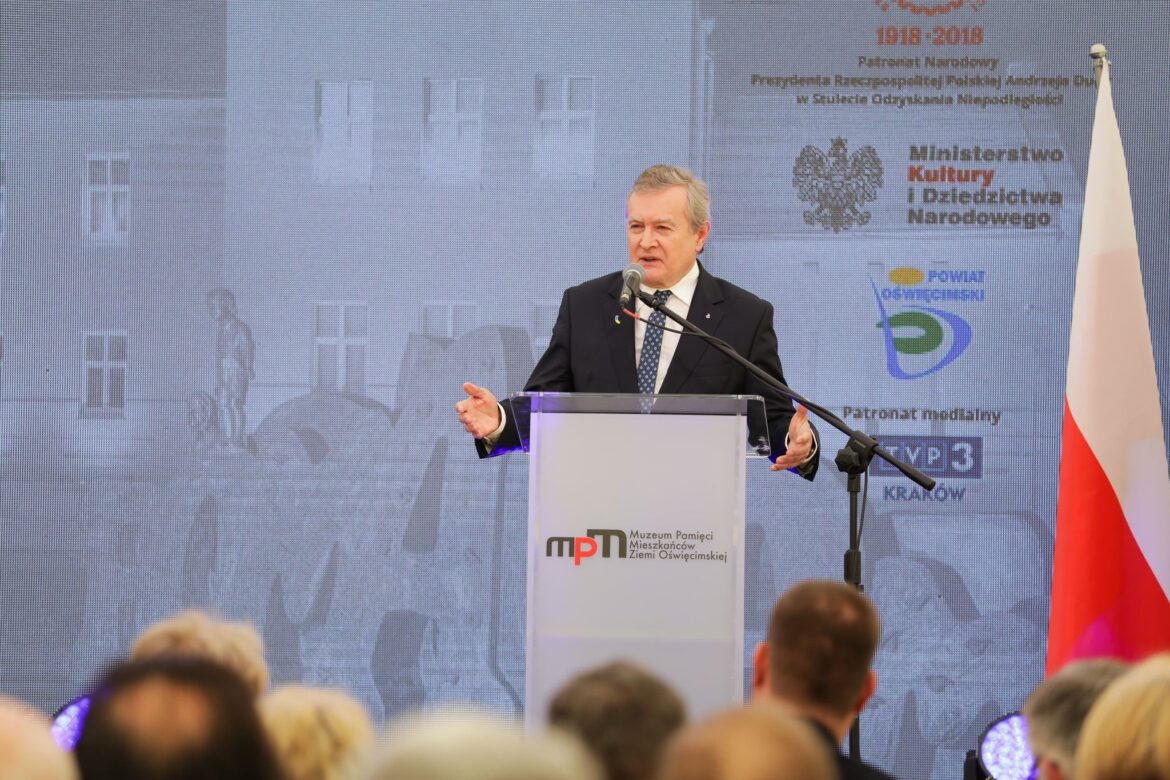The permanent exhibition of the Memorial Museum of the Inhabitants of the Oświęcim Region was officially opened in Oświęcim. The exhibition “Images of memory – the fate of the inhabitants of the Oświęcim region” is aiming to restore and save the memory of people who made the history of the region, who helped prisoners of KL Auschwitz. The ceremony was attended by the Minister of Culture and National Heritage, Prof. Piotr Gliński.
“It is a very important day for the Oświęcim region and also, more broadly, for Poland, for the memory of the world. Another institution of memory was created that we really need. It will be an institution that will serve Poland well”, said Minister Gliński.
The head of the Ministry of Culture emphasized that this is another institution that fills the white blanks of memory, as well as the recently opened Museum of Cursed Soldiers in Ostrołęka, the Siberian Memorial Museum and the Museum of John Paul II and Primate Wyszyński. He added that for years the involvement of the Ministry of Culture in public affairs has been based on a conscious historical policy relating to Polish identity and community.
The newly opened exhibition combines the past with the present, building an intergenerational bond and community. The main idea of the exhibition is to focus on the fate of man in a clash with important historical events. The key part of the exhibition concerns the period of World War II and presents the heroic actions of the inhabitants who offered all kinds of help to the prisoners of the Auschwitz camp risking their own and their relatives’ lives.
The mission of the museum run by the Ministry of Culture and National Heritage and the Oświęcim Poviat is to commemorate the inhabitants of the Oświęcim region, with particular emphasis on the help they provided to KL Auschwitz prisoners during World War II. Minister Gliński expressed his hope that the museum dedicated to the memory of the inhabitants of the Oświęcim region would start fruitful cooperation with the Auschwitz Museum.
Arkadiusz Słomczyński





